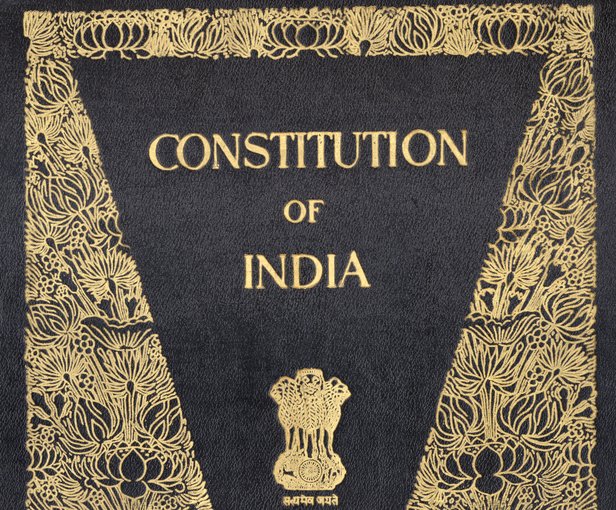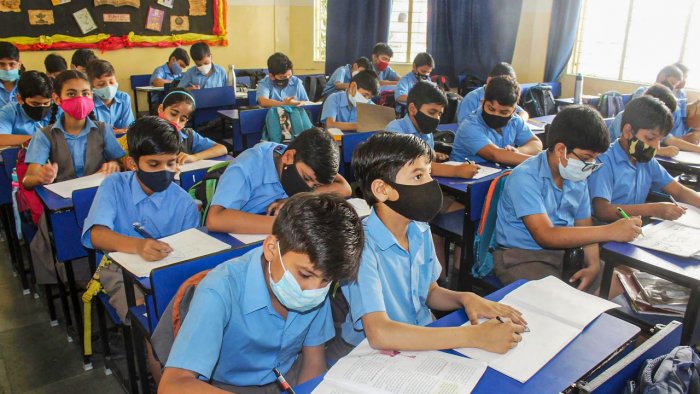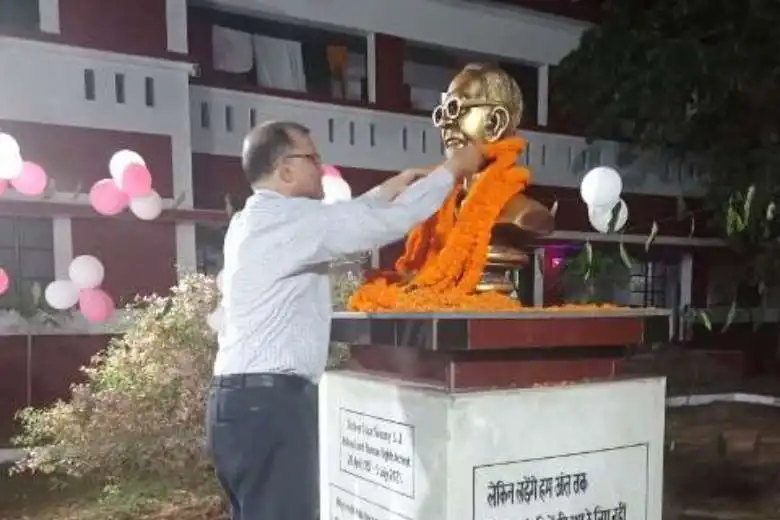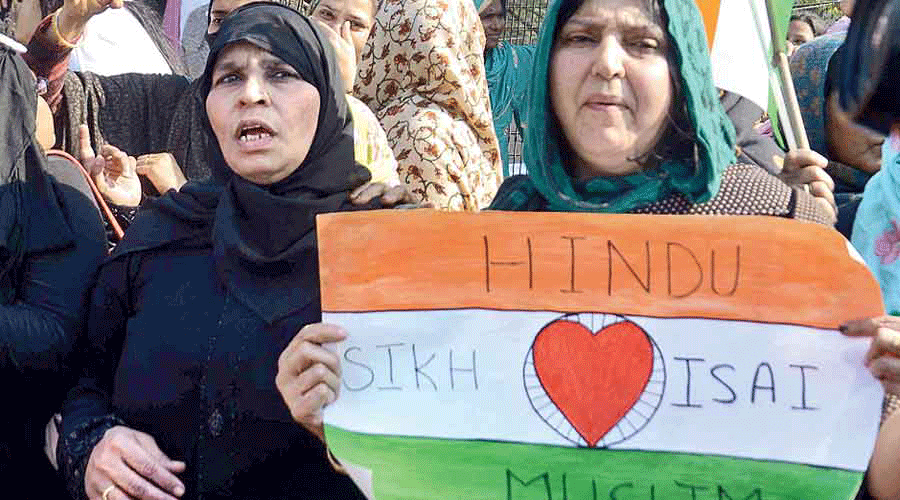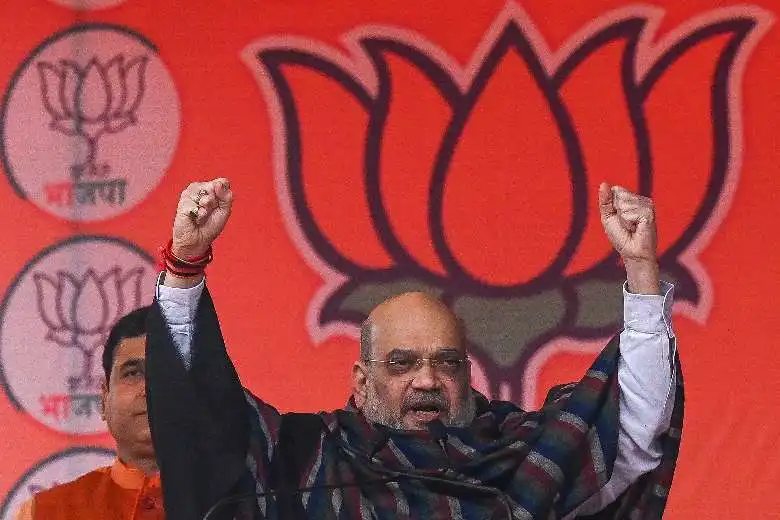Serious Threat to Secularism and Democracy in India
A Timely Warning by Over 100 Very Senior Ex-Bureaucrats On 26 April over 100 former senior civil servants of India belonging to the Constitutional Conduct Group sent a letter to the Prime Minister drawing attention to the shocking increase in communal violence and government response to this. What is stated in this letter is so important that this should be taken to be a very timely warning to protect the country and its constitution by deeply concerned, extremely sincere and highly well-informed persons. While all the nearly 108 signatories earlier held very senior positions in the government, what further increases the importance of this letter is that the signatories include those officials (retired) who held very senior positions in the security establishment. The signatories include, for example, such names as Shivshankar Menon, former National Security Adviser; G.K.Pillai, former Home Secretary, Government of India and Shyam Saran, former Chairman, National Security Advisory Board. When some important events take place, we need very senior and experienced persons with inside knowledge of systems to provide us a proper understanding of these events and what is unfolding. In the present context we could not have asked for a more experienced and better qualified group than this Constitutional
US’s Religious Freedom Report “Indophobic, Hinduphobic”: Hindu Council
USCIRF religious freedom report recommended designating India as "country of particular concern" Washington: A Hindu body in Washington has called the USCIRF report on religious freedom a work of "Hinduphobic" commission members while Muslim and Christian groups hailed the observations made in it, demanding that the US declare India as a "country of particular concern". The US Commission for International Religious Freedom or USCIRF report recommended to the Biden Administration to designate India, China, Pakistan, Afghanistan and 11 other nations as "countries of particular concern" in the context of religious freedom. The recommendations are not binding on the US government. HinduPACT, an initiative of the World Hindu Council of America, in a statement alleged that the USCIRF has been taken over by "Indophobic and Hinduphobic members". The American Muslim Institution (AMI) and its associate organisations applaud the USCIRF recommendation, saying religious freedom conditions in India "significantly worsened" in 2021. The Federation of Indian-American Christian Organisations and the Indian-American Muslim Council in separate statements reportedly applauded the USCIRF recommendation. During a special virtual congressional briefing, a day after the release of the report, USCIRF Commissioner Anurima Bhargava had alleged that Indian government officials were tolerating and engaging in religious persecution of Muslims and Christians with prolific mob violence. India has
Karnataka government issues notice to Bengaluru school over Bible row
While it awaits the school’s response, the government has directed all state block educational officers to monitor schools for religious teachings and issue notices The state government has issued a notice to Clarence High School in Richards Town in East Bengaluru to explain its decision to mandate teaching of the Bible. Considering complaints from parents and media reports, the Department of Primary and Secondary Education issued a notice to the school on Tuesday, with Primary and Secondary Education Minister B C Nagesh confirming that the government will take confirming that the government will take action after the school’s response. The minister told a press conference on Tuesday that the school’s action is a violation of the Karnataka Education Act. “While issuing a No Objection Certificate to other board schools, we insist that they stick to the provisions of the act,” he said. Although minority educational institutions may get administrative relaxations, they are not allowed to teach religious books. “There will be no special provisions in the curriculum to teach or preach religious books in schools. All these were mentioned while issuing the No Objection Certificate,” Nagesh added. While it awaits the school’s response, the department has directed all state block educational officers to monitor schools
Indian Jesuit’s martyrdom recalled on his birth anniversary
Father Stan Swamy, who stood with tribal people to oppose exploitative policies, died in judicial custody in 2021 Indian Jesuit's martyrdom recalled on his birth anniversary Father Denzil Fernandes, director of the Jesuit-run Indian Social Institute in New Delhi, garlands the bust of Father Stan Swamy on his birth anniversary in Ranchi, Jharkhand, on April 26. (Photo supplied) The 85th birth anniversary of Father Stan Swamy, the first since his death, was observed with the release of a book and unveiling of his bust at Bagaicha, a training and social action center he founded in the eastern Indian state of Jharkhand. Elsewhere in the country, members of the Indian Church and civil society remembered the martyred Jesuit’s contributions to upholding the human rights of the most marginalized sections of society. The main event was held at Bagaicha in Namkum, Ranchi, on April 26 where the two-foot-high bust of Father Stan stands tall overlooking the institution he founded in 2006. Keeping his memory alive, Bagaicha continues to empower individuals and organizations working against the displacement of marginalized people, human rights violations, illegal land acquisition and confinement of tribal people by branding them as Maoists. Also released on the occasion was the Hindi version of the priest’s memoir
US panel again recommends India as ‘country of particular concern’
For the third straight year, the United States Commission on International Religious Freedom has recommended to the state department that it designate India as a “country of particular concern”, where the government “engages in or tolerates ‘particularly severe’ violations of religious freedom”. The designation is reserved for the worst violators of religious freedom; Pakistan, Saudi Arabia, Iran, North Korea and Russia are also designated as CPCs Both the Joe Biden and Donald Trump administrations had in 2021 and 2020, respectively, ignored the commission’s recommendation to designate India as a country of particular concern (CPC). The commission is an independent, bipartisan US federal government agency created by the 1998 International Religious Freedom Act (IRFA). India did not react immediately to the latest recommendation, made in the commission’s annual report for 2022, released on Monday. The designation “CPC” is reserved for the worst violators of religious freedom. Currently, 10 countries including Pakistan, Saudi Arabia, Iran, North Korea and Russia are designated as CPCs. Four other countries have received the CPC recommendation along with India: Afghanistan, Nigeria, Syria and Vietnam. The purpose of such a recommendation is to focus US policymakers’ attention on the worst violators of religious freedom globally. For countries designated as CPCs, the IRFA provides the US
STATEMENT
FIACONA WELCOMES THE USCIRF REPORT ON INDIA. April 25, 2022, Washington DC. The Federation of Indian American Christian Organizations applauds the designation of India as a Country of Particular Concern (CPC) by the US Commission on International Religious Freedom (USCIRF) for the 3rd consecutive year in its 2022 Report released today. India has been going through tumultuous upheavals caused by the rise of Hindu nationalism in recent years. The formation of a Union (Federal) government by Hindu nationalists in 2014 and their re-election in 2019 under Mr. Narendra Modi has seriously jeopardized the foundational framework for a functioning democracy in India. 2021 has been the most violent year on record for the Christians in India. The Federation of Indian American Christian Organizations (FIACONA) has documented an unprecedented 761 violent acts against Christians[i] in India by the groups directly affiliated to the Hindu nationalist Modi government. The attacks against other religious minorities in India have also gone up several-fold in the last 7 years. These attacks are motivated in part by the perceived protection provided for the attackers by the government officials. The Modi government has maintained an eerie silence against such attacks giving the impression that the government tacitly supports such attacks. While we are appreciative of
A strong push for a Hindi-speaking, Hindu India
Hindi as the national language suits the BJP's wider agenda of establishing a nation of and for Hindus A strong push for a Hindi-speaking, Hindu India Home Minister Amit Shah gestures during an election rally in Uttar Pradesh on Feb. 3. Federal Home Minister Amit Shah, a trusted aide of Prime Minister Narendra Modi, has come all out in support of Hindi as the official language of communication across a multilingual India. Hindi is the mother tongue of around 40 percent of Indians in the northern belt while the rest of its citizens speak over 120 other languages, with English serving as the crucial bridge. Shah made it clear that Hindi should become an “alternative to English” and not the other Indian languages. He wants non-Hindi speakers to start using Hindi while communicating with each other. He also suggested making Hindi flexible by accepting words from other Indian languages to help propagate it. Leaders from Hindi-speaking northern India have been pushing to make Hindi the national language for a long time, hoping to further endear themselves to their voters. But Shah’s remarks at a recent meeting of the parliamentary official language committee are a bit baffling. There is perhaps a communal angle here. The Bharatiya Janata
26 held for unlawful religious conversion in Fatehpur: Cops
The arrests were made after a raid was carried out at a church in the Hariharganj area on the information provided by members of a Hindu organisation, it is learnt. Fatehpur, Uttar Pradesh, Uttar Pradesh news, Uttar Pradesh Police, Religious conversions, unlawful religious conversion, Indian Express, India news, current affairs, Indian Express News Service, Express News Service, Express News, Indian Express India News. All those arrested were later bailed out. The drive against bootleggers was also conducted on Friday night. (File) Twenty six persons were arrested on Friday for alleged illegal religious conversions in Uttar Pradesh’s Fatehpur district, police said. The arrests were made after a raid was carried out at a church in the Hariharganj area on the information provided by members of a Hindu organisation, it is learnt. Besides the anti-conversion law, the police also invoked charges of promoting enmity between two groups against the accused. “Those arrested, all men, were produced in a local court in Fatehpur. The court dropped anti-conversion charges since the complainant was not party to the alleged conversion as the case was filed by a Hindu organisation member. The court granted bail to nine persons while others were sent to jail,” said circle officer (city) Dinesh Chandra
Won’t allow religious conversions in Goa: CM Pramod Sawant
Goa CM Pramod Sawant also called upon people to be alert about religious conversions and said, “The temple committees should also keep watch”. PANAJI: Chief minister Pramod Sawant said on Friday that his government would not allow any religious conversions in the state. “In different parts of the state, people are taking advantage of poor belonging to minority and backward communities, who are unemployed and striving for food and doing religious conversions. Such religious conversions should not take place even by mistake and my government will not allow it,” Sawant said at an idol installation ceremony at Kudnem temple in Bicholim taluka. He also called upon people to be alert about religious conversions and said, “The temple committees should also keep watch”. Referring to the Portuguese rule, Sawant said: “Sixty years ago we believed in dev (god), dharma (religion) and desh (nation). It was believed that if god is protected, then religion will be protected and if religion is protected, then nation will be protected. With these sentiments people of Goa migrated to places with the idols of gods.” He said after 60 years, people are once again making an effort to visit the places from where they were displaced, to try and find their
Understanding politics around Anti-conversion Laws in Adivasis dominated states in India
Anti-conversion laws in India, ironically also known as Freedom of Religion Acts, are state-level laws that have been enacted to regulate religious conversion. To date, Ten states out of twenty-eight states have enacted these laws: Orissa, Madhya Pradesh, Arunachal Pradesh, Gujarat, Chhattisgarh, Himachal Pradesh, Uttarakhand, Jharkhand, Uttar Pradesh and Karnataka. Haryana, this February, has introduced an anti-conversion bill in the Assembly. Recently, Manipur has also shown interest in bringing such laws. The majority of these states have a good number of Adivasi/Tribal populations. So it is intriguing to know why these laws are more familiar to Adivasi dominated states?. But in recent years, it is becoming common across the country, especially where BJP is the ruling party. In this piece, my focus is on Adivasi dominated states. Anti-conversion laws are not a new phenomenon in India, it has a history since the colonial time. Around the 1930s and 1940s, some Hindu princely states enacted these laws to preserve Hindu religious identity out of the fear of the British missionaries. The princely states were Kota, Bikaner, Jodhpur, Raigarh, Patna, Surguja, Udaipur, and Kalahandi. In post-colonial India, despite pressure from Hindu groups to introduce anti-conversion laws at the national level, Nehru rejected such





